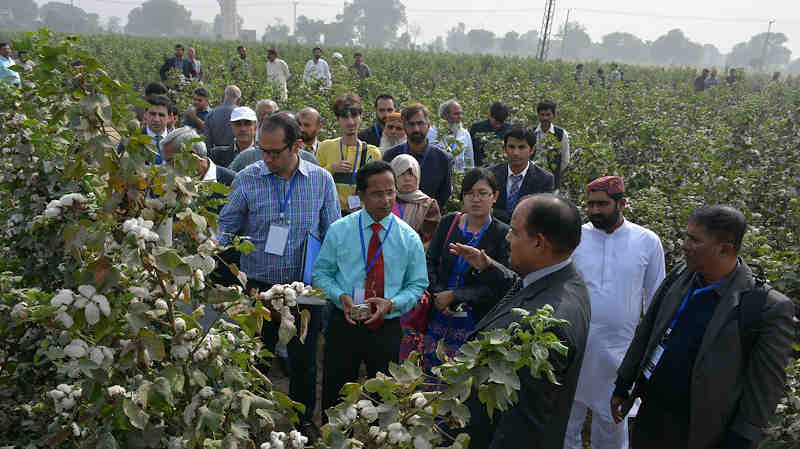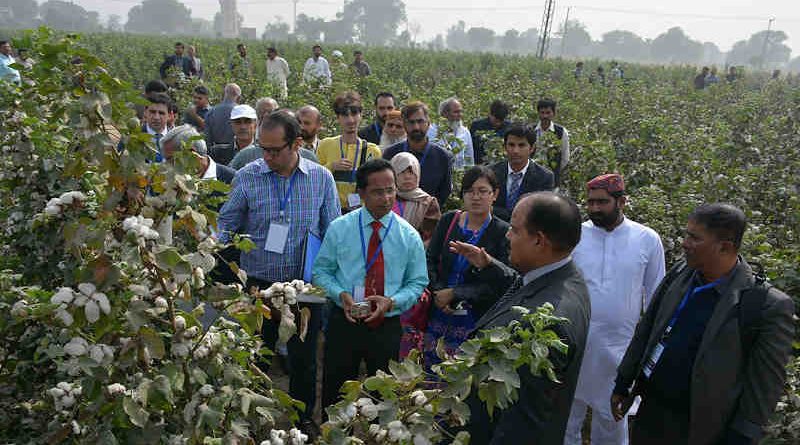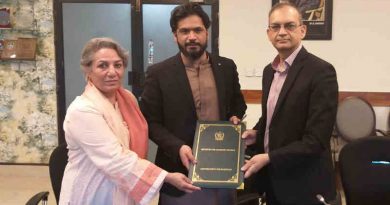How Nuclear Techniques Help the Textile Industry in Pakistan

How Nuclear Techniques Help the Textile Industry in Pakistan
To continue to support the textile industry, which employs 40 per cent of the labour force in the country, the release of new cotton varieties continues.
The International Atomic Energy Agency (IAEA), in partnership with the Food and Agriculture Organization of the United Nations (FAO), is working with local experts in Pakistan to develop and introduce new varieties of cotton that are more resilient and better adapted to the new climate reality in the country. The new varieties developed now account for 40 per cent of all cotton produced, up from just 25 per cent two years ago and from non-existent yield in 2016.
“Agriculture is central to Pakistan’s economy, and cotton has a significant role in driving the economy of the country. Through nuclear techniques, we can ensure that this economic area remains profitable,” said Manzoor Hussain, Deputy Chief Scientist and cotton breeder at the Nuclear Institute for Agriculture and Biology (NIAB), in charge of the project in Pakistan.
The support and training in plant mutation breeding and selection by the IAEA and FAO, delivered through the IAEA technical cooperation programme, has helped pave the way for the NIAB release of four cotton varieties since 2016. All over the country, the popularity of these varieties has been steadily growing.
To continue to support the textile industry, which employs 40 per cent of the labour force in the country, the release of new cotton varieties continues. These new varieties have higher yield and improved fibre quality as well as good agronomic performance and adaptability to climate change variation.
“Heat stress in cotton resulting from increasing temperatures and instances of drought can impact the yield and, therefore, the income of farmers,” said Ljupcho Jankuloski, a plant breeder and geneticist at the Joint FAO/IAEA Division of Nuclear Techniques in Food and Agriculture. “Through the use of mutation breeding technologies, new varieties that are adapted and resilient to climate change and with improved fibre quality can be used to continue to meet the needs of the population despite changing weather patterns.”
The collaboration between the NIAB, the IAEA and FAO includes a long-term technology transfer and capacity-building programme. Having this focus, the partnership has included training, workshops and fellowships – training Pakistani scientists in plant breeding techniques focused on developing cotton varieties tolerant to drought and high temperatures.
Using nuclear techniques, the first cotton variety was released in Pakistan in 1983; since then, a total of 16 cotton varieties have been developed. The four latest varieties to be released are expected to make up 56 per cent of seeds planted throughout the country in the coming months.
Through this long-standing collaboration, Pakistani scientists have reached a level of expertise that they can share with neighbouring countries that are in the early stages of mutation breeding. With this combination of suitable facilities, technical know-how in cotton mutation breeding and improved cotton varieties in the field, the NIAB can now host IAEA training for experts from neighbouring countries enabling field visits to see crop performance in the field.
“Through the IAEA training that NIAB has hosted, cotton varieties have been developed in neighbouring countries for the first time,” Jankuloski said.




